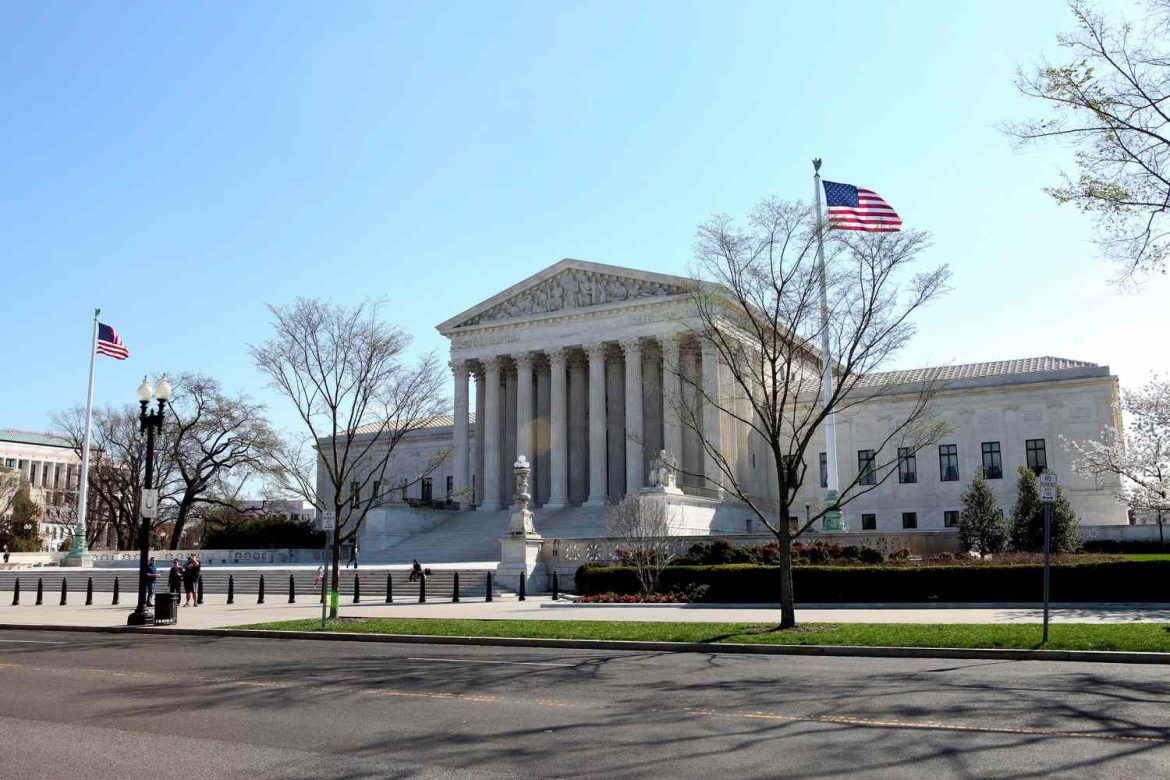President Joe Biden and Vice President Kamala Harris unveiled a set of radical reforms aimed at overhauling the U.S. Supreme Court. Republicans have wasted no time in condemning these proposals, labeling them as “outrageous” and a “threat to Democracy,” drawing parallels to judicial overhauls that paved the way for a socialist dictatorship in Venezuela.
The Controversial Proposals
The Biden-Harris plan includes several sweeping changes:
- Term Limits for Justices: An 18-year term limit for Supreme Court justices.
- Ethics and Transparency: Justices must disclose gifts, avoid public political activity, and recuse themselves if they or their spouses have conflicts of interest.
- Limiting Presidential Immunity: A new constitutional amendment to limit presidential immunity.
Republican Outrage
Republicans were quick to react. Rep. Maria Elvira Salazar (R-Fla.) took to X, calling the reforms “outrageous” and a direct attack on the “American exceptionalism” that the nation prides itself on.
“Be very careful,” Salazar warned, “because touching the Supreme Court is touching the core of the American system.”
Joined by other GOP members of Florida’s congressional delegation, Salazar suggested that the reforms were politically motivated.
Historical Parallels and Political Motivations
Rep. Mario Diaz-Balart (R-Fla.) pointed to historical precedents, claiming that such institutional changes are typically politically driven. “It is highly dangerous, unacceptable, and a real threat to democracy and all of the freedoms we enjoy in the United States,” he added.
Rep. Carlos Gimenez (R-Fla.) went a step further, comparing the Biden-Harris proposals to actions taken by the late Venezuelan dictator Hugo Chavez. “What’s the first thing that Hugo Chavez did when he became president? He reformed the Supreme Court of Venezuela to make things legal for himself,” Gimenez noted.
The Threat to Democracy
Gimenez continued, “Touching the judicial system is one way to maintain power. This is really, really dangerous for our national security and for the security of democracy.”
Rep. Nicole Malliotakis (R-NY) echoed these sentiments, pointing out how Chavez packed the Venezuelan Supreme Court, which ultimately led to the country’s downfall. “We can NEVER allow that to happen here,” she insisted.
Biden’s Plan: Dead on Arrival?
House Speaker Mike Johnson (R-La.) made it clear that the Biden-Harris reforms would be “dead on arrival” in the House. “President Biden’s proposal to radically overhaul the U.S. Supreme Court would tilt the balance of power and erode not only the rule of law but the American people’s faith in our system of justice,” Johnson argued.
Johnson further criticized the Biden-Harris Administration’s ongoing efforts to delegitimize the Supreme Court, stating, “Their calls to expand and pack the Court will soon resume. This dangerous gambit is dead on arrival in the House.”
The Long Road Ahead
The proposed reforms face steep hurdles. The divided Congress is unlikely to take up the issue in the six months Biden has left in office. The push for a constitutional amendment restricting presidential immunity, particularly in response to the Supreme Court affirming that presidents, including former President Donald Trump, have absolute immunity for official acts, faces even more significant challenges. It would require two-thirds support from both the House and the Senate or the approval of three-fourths of state legislatures.
In a political climate already rife with tension, the Biden-Harris proposals have added fuel to the fire. Republicans are steadfast in their opposition, viewing these reforms as a dangerous overreach that threatens the very foundations of American democracy. As the debate continues, one thing is clear: the road to any significant changes in the Supreme Court will be long and contentious.

